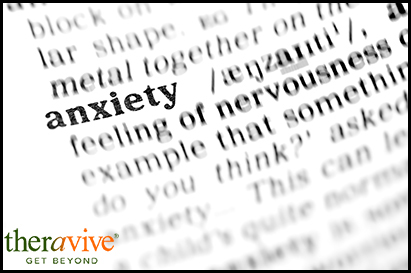 Driven by Fear
Driven by Fear
Anxiety is a common mental health concern. It is defined by Endler (1997), as being an emotion that is driven by fear. Anxiety can interfere with a person’s ability to function in daily activities, and can become so invasive in their lives that they may be unable to deal with work or school. When anxiety becomes this much of a problem, it is important to have strategies to decrease the anxiety. Treatment by a mental health professional is often a good choice as counseling and medication have been shown effective in the treatment of anxiety disorders. However, individuals can use coping strategies on their own that may help to alleviate symptoms of anxiety when treatment is delayed or unavailable. In some cases, people have been successful at self-managing their anxiety by using some of the coping strategies which will be outlined below.
Coping
In academic literature, it is common to classify coping strategies into three categories. Hughes, Budd, and Greenaway (1999) described three factors of coping: Task-oriented coping focuses on problem solving, emotion-oriented coping maintains a focus on regulating emotions in order to reduce stress and avoidant-oriented coping, which generally involves distraction and evasion techniques. Some of the effective coping strategies that they outlined included positive self-talk and relaxation techniques. Endler (1997) discussed a multi-dimensional interaction model of anxiety in which anxiety is affected by both states and traits. It was pointed out that different types of coping mechanisms are appropriate in different situations. In that regard, and individual needs to have more than one coping strategy or technique. The author also indicated that social support and a feeling of being in control have been shown to be important factors in effectively dealing with anxiety.
Treatment
Meuret, Wolitsky-Taylor, Twohig and Craske (2012) discuss some of the common treatment approaches for anxiety. Most of these approaches teach some form of coping skill building as being vital in the process. Cognitive behavioral therapy is an approach in which a patient is gradually exposed to that which is causing the anxiety. Exposure is based on low-level situations and support from the helping professional. During this therapy, patients are taught coping mechanisms which are cognitive and physiological. They may be taught to challenge their own thinking patterns, and taught to breathe deeply or use relaxation to deal with physical symptoms of anxiety. Cognitive skill training helps a patient to recognize and confront their thoughts about what is happening physically during anxiety. While it may be common to interpret chest pain as a sign of a heart attack, this training encourages the individual to identify that stress and anxiety are causing benign physical symptoms.
 Maertz (n.d.) gives an extensive list of coping strategies that may be more user friendly.
Maertz (n.d.) gives an extensive list of coping strategies that may be more user friendly.
· Panic attacks are not harmful- Physical manifestations of panic can be scary, and people sometimes become more fearful as a result. Recognizing that there is no harm can reduce anxiety.
· Use positive self-talk and acceptance- Sub-vocal affirmations and silent reminders can help the individual to be realistic about what they are experiencing.
· Load an arsenal with distraction techniques- These will be unique to the individual, but there are simple things like counting breaths, exercising, engaging in a hobby or talking to a friend that can help someone get through an anxiety attack.
· Be aware of warning signs- For many people, an anxiety attack does not simply appear. Much of the time, there are signs that anxiety is coming. Again, this is unique to the individual and tracking symptoms can help to identify patterns.
· Decrease stress- When anxiety is an ongoing problem, recognizing those things which might cause stress can help to avoid anxiety. It may mean changing jobs, decreasing community involvements or simplifying the daily routine. Stress is often a trigger for anxiety and decreasing stress will frequently lead to lower levels of anxiety.
Support
Knott and Kriebe (2003) discuss the effectiveness also of anxiety support groups or group therapy. Often in these sessions, relaxation techniques and meditation are practiced, anxiety is discussed, and peers/facilitators support the individual. This goes back to the importance of social support, and becoming part of a group of individuals fighting the same symptoms can be helpful. Online searches can often help to locate a group that might be appropriate for this type of support.
When a person has ongoing issues with anxiety, it can feel overwhelming to deal with. It is common that anxiety leads to more anxiety and unless interrupted, the cycle spins out of control. The techniques outlined above can be crucial in interrupting that cycle. If anxiety continues to be a persistent problem, and self-directed coping strategies are not useful, the best option is to seek help from a mental health professional.
_________________________________________________________________________________________________________________________________
Endler, N. S. (1997). Stress, anxiety and coping: The multidimensional interaction model. Canadian Psychology, 38(3), 136.
Hughes, I., Budd, R., & Greenaway, S. (1999). Coping with anxiety and panic: A factor analytic study. The British Journal of Clinical Psychology, 38, 295-304.
Knott, J. and Kriebe, G. (2003). Coping With Stress and Anxiety. Retrieved from http://cmhc.utexas.edu/clearinghouse/files/TI015.pdf
Maertz, K. (n.d.). Panic/anxiety attacks. Retrieved from http://www.mentalhealth.ualberta.ca/en/~/media/mentalhealth/Docs/hintspanicattacks2012.pdf
Meuret, A., Wolitsky-Taylor, K., Twohig, M., and Craske, M. (2012). Coping skills and exposure therapy in panic disorder and agoraphobia: Latest advances and future directions. Behavioural Therapy, 43(2), 271-284.
About the Author
 Cathy England, MA
Cathy England, MACathy holds a Master’s degree in Psychology and has 13 years of work experience in counseling and social work. Cathy is an advocate for mental health awareness and enjoys educating people about mental health and the ways that it impacts people and communities. Most of her experience has been in work with court dependent or delinquent adolescents and their families. Cathy has also worked as a volunteer as a Court Appointed Special Advocate (CASA) for children under court supervision.
Professional Website:
crawfordcasa.org